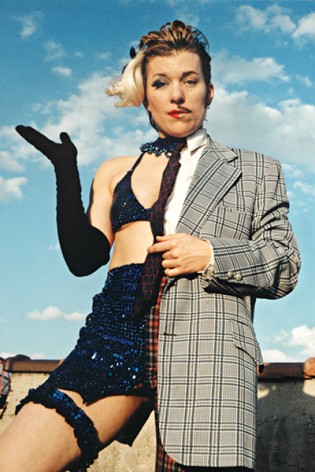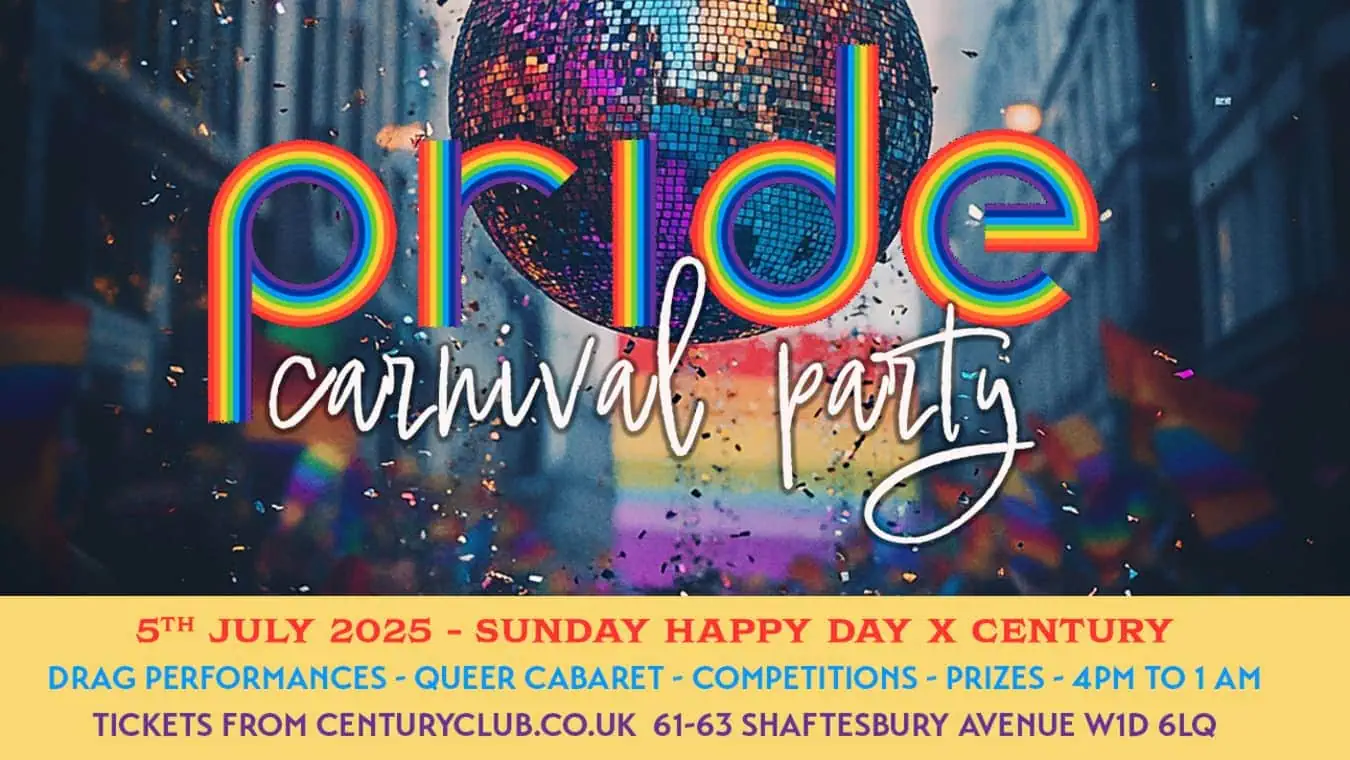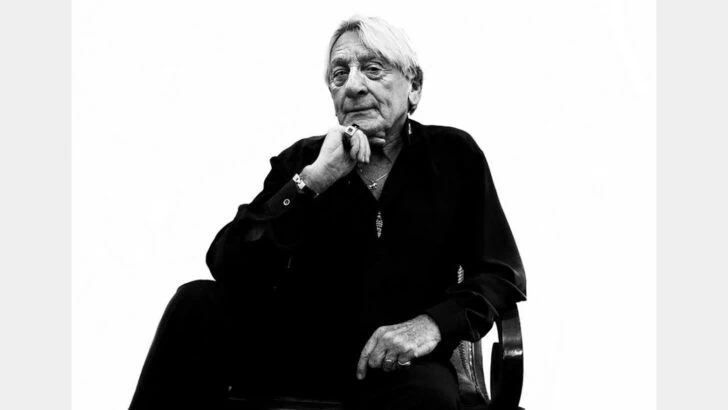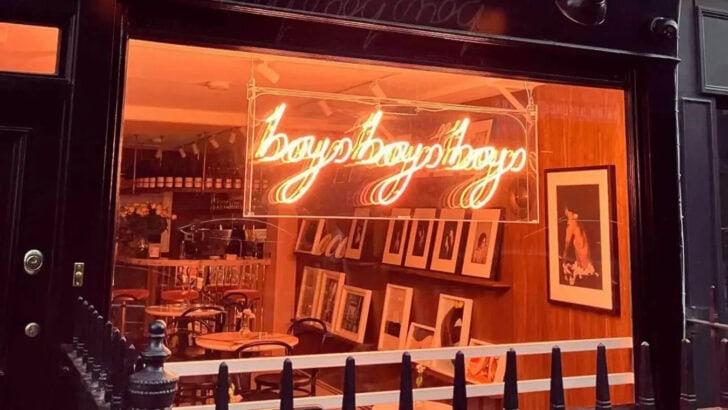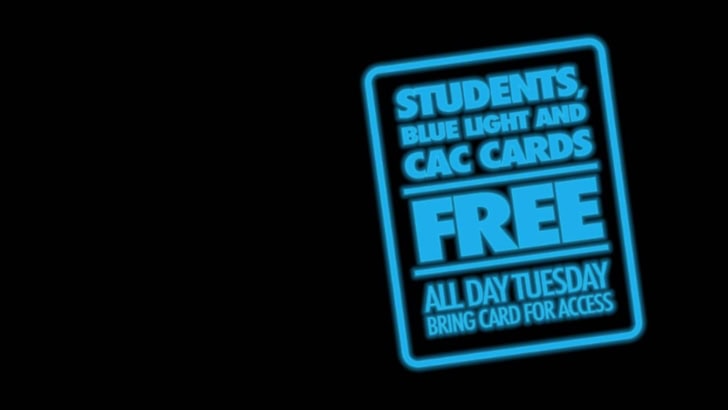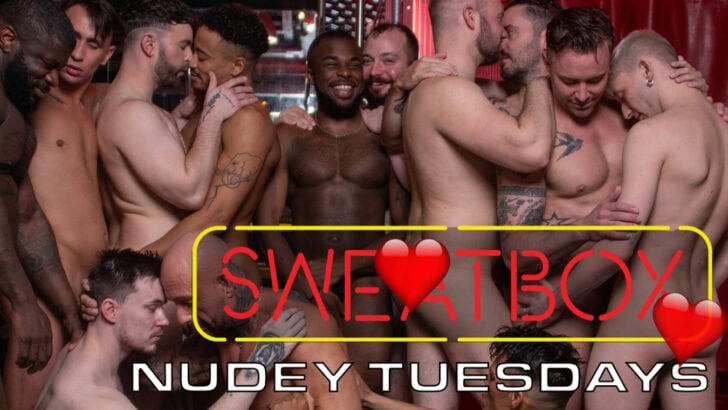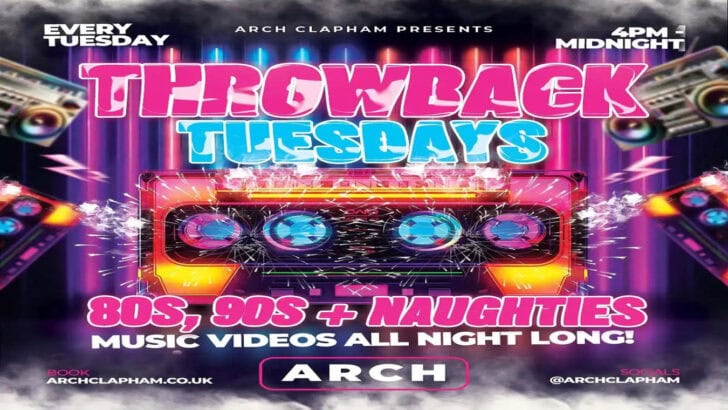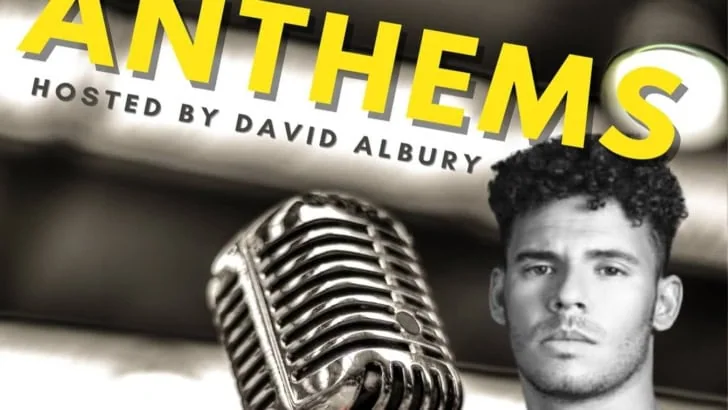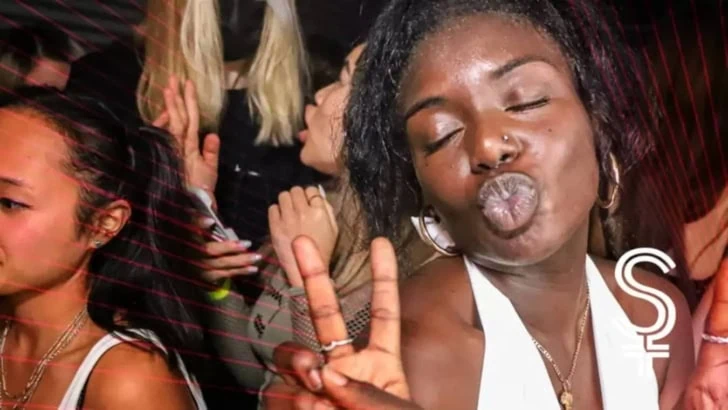Del LaGrace Volcano is a stereotype-busting pioneer of gender non-conformity. Identifying as intersex (a biological, chromosomal or anatomical variation from the expected) Del’s photography has celebrated the people that refuse to be forced to live by the simplistic ‘male’ or ‘female’ roles that society dictates we adopt at birth. This week he was the special guest at the Riverside Studios where he headed the post-show discussion following performances of current production Drag King Richard III, where an exhibition of his photography is also featured. Cliff Joannou talked to him…
How would you describe yourself to our readers?
I’m a gender-variant visual artist. I’m interested in non-conformity. My primary subject is drag, but I’m also interested in those that also live it and not just perform it on stage, for example I have photographed trans women that have beards. I’m interested in people that challenge the status quo.
It’s one thing to get on stage and perform in a challenging way, but another thing to live your life like that within a wider community.
I agree. Like me, how I live my life is even a bit different. As somebody who’s transsexual or transgender might say they are going from A to C, whereas I say that I’m just ‘going’. I’m intersex, but I’m also living that life. I’m someone that if you look at, you can’t tell if I was born male or born female. My body and presence in the world and how I express my gender is about questioning those norms. That’s not to say you have to question them, that’s not everybody’s bag or that they have to do that, but that’s something that I’m good at, so I do it.
You must have been through so many identities. How was your childhood?
During my childhood I had no idea. I mean I was quite comfortable being a girl, even though I was at that point a girl that defied stereotype. I was actively and politically bisexual and queer from a young age, twelve I guess. I’ve never lived in a heterosexual relationship in my life. Even my partner now who is the birth parent of our soon to be two children, looks more masculine than I am. I’m the one who does the cooking and cleaning and shopping. My partner, who is both Matt and Matilda, does the Ikea furniture shelves and all the butch work. I’m quite femme, I’m the one that wears makeup, and the skirt, so maybe its easier for me because I have facial hair and muscles. When people see me they assume I’m gay. I identify as queer, or gender-queer.
What does that word ‘queer’ mean to you? It’s quite a recent addition to the string of acronyms that make up our community.
For me it’s about questioning the status quo. You can be queerly heterosexual if you are questioning those norms. But for me queer is much more than about where you put your genitals. Being gay and having a same sex attraction is no guarantee that you have any radical political beliefs. You can say I have a radical political life.
In a recent interview Irish drag queen Panti Bliss told me that drag is inherently political, whether you intend it to be or not. He pointed out that if you are a bloke and you put a dress on, you are making a political statement. Do you agree?
I would say yes, but there’s also a safety when you go on stage in a gay venue, you’re risking very little. When you’re a man and you’re putting on a dress and walking around town that’s a very different thing. I issued a challenge called Walk the Walk for straight men in a small Swedish town to walk around holding hands – nothing more, not snogging or fucking, just to walk around holding hands and to have the experience of what it feels like for same sex couples. Where outside of gay Pride, even in London or Soho, do you see men holding hands? So these straight men, our ‘allies’, were amazed at what it felt like. We got some abuse, and they felt much more aware of the discrimination that people face, particularly men to conform to a certain masculine culture. We’re planning similar things in other cities.
What are the biggest misconceptions about intersex people?
That intersex is a disability, that’s a big misconception. That an intersex person identifies with ‘intersex’ because many people that are identify as either men or women. They don’t have a political identity, quite possibly because that’s not an option. That we have fully functioning sets of genitals; people have anything from mild to more serious intersex variations. The other misconception is that intersex is extremely rare, but 1 in 2000 people are diagnosed with some form of intersex at birth because of ambiguous genitals. But far more than that are like me and didn’t notice anything different until puberty when my body started to develop different to the norm of the female body.
It’s not that rare at all then?
No. Have you ever known a guy that had a penis that leaked or when you have to sit to pee? That’s a form of intersex. It can be very mild. The medical establishment have tried to get us to see it as a defect, as a deformity. My first cousin was clitorectomised. She was assigned male at first, then they decided she was female, and she was told she had cancer to have surgery. Some people can go their whole life and never know they are intersex.
What reactions have you had from the gay male community?
There are all different kinds of gay men. Some have been extremely supportive, others more dubious. My first book was published by Gay Men’s Press in 1991, so you can’t talk about gay men as one thing.
What have been the biggest moments of gay rights for you?
I think it’s quite interesting to see how the media has changed and embrace LGBT people more fully. To see characters like Laverne Cox in Orange is the New Black and to see a trans person playing a trans character. She’s wonderful and not a stereotype.
You’ve seen some major transitions in LGBTI rights over the last fifty years. Do you feel we are losing sight of some of the original themes of the original gay Pride movement to establish a new sexual democracy and liberation from gender conformity?
Yes. The first Pride I went to was in San Francisco the year after Harvey Milk was killed in 1980, and I went to the first Pride in Rome in the ‘90s. In terms of the commercial aspect of it I can be happy that it’s just another party, but on the other hand intersex children are still being mutilated to fit societies norms, or being aborted. These things are happening. In Sweden, the largest LGBT organisation has finally managed to get the sterilisation laws so trans people can get the hormones and surgery without having to be sterilised. That took ten years. I would say there’s still a lot of work to do.
How do you feel about turning 57?
Born in 57, turning 57. That’s a landmark. I would say that I’m happy to be living when I’m living now.
Tell us about your child. Is it a boy or a girl?
You see that’s an interesting question because Mika hasn’t told us. Most people make assumptions based on how Mika looks, because he has long blonde hair and wears dresses and pink and also baseball caps and boyish clothes. People don’t really know. Mika is a person with a penis and we use pronouns that are appropriate to that. When people ask, I might say, “Oh are you interested in what kind of genitals my child has?” We actually think that it’s good that Mika is seen as a girl sometimes, because like me my partner, we both have the experience of being perceived as both male and female and we think that’s a valuable experience.
• Drag King Richard III runs at Riverside Studios until Saturday 3rd August. Tickets: www.riversidestudios.co.uk and 020 8237 1111
• Read the extended interview at: qxmagazine.kinsta.cloud/feature/del-lagrace-volcano
